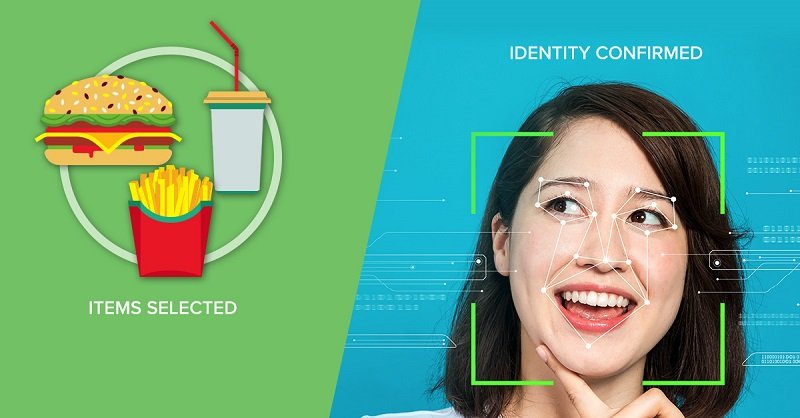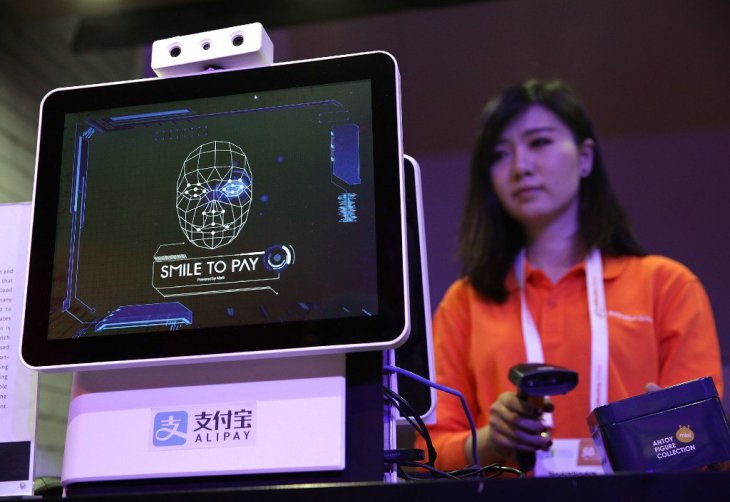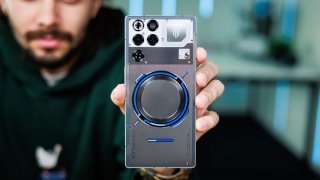Facial Recognition Payment Poses As A Threat To Users' Privacy
Harin - Jul 17, 2019

- Indian Police To Install AI Cameras To Prevent Crime Of Rape
- Wearing This T-Shirt And You Are "Invisible" To Every Facial Recognition Camera
- Indian Police Used Facial Recognition To Arrest Over 1,100 People In A Riot Last Month
It’s common in China to see people scan their faces for payments in both smartphone apps and in stores. Unfortunately, a bank official warned that this method is unsafe. According to Li Wei, the People’s Bank of China’s Director of the technology department, consumers should understand that they are giving away their privacy when they opt for convenience.
Faces are extremely sensitive personal information. Once it is leaked or stolen, it could have a serious impact on someone. While people can keep their bank cards inside their wallets, they can’t hide their faces all the time.
Li added that some companies haven’t taken into account these problems. It’s dangerous to let users scan their faces for payments while showing their phone numbers on a big screen for double verification.

Chinese firms have been incorporating facing recognition technology into their payment apps while dealing with just a few regulatory barriers as well as criticism from the citizens.
Both WeChat Pay and AliPay, which control over 90% of the $41.51 trillion markets, have deployed their facial recognition systems. The China Internet Network Information Center reported that the number of mobile payment users in China in 2018 was 583 mil.
State media has already raised their voice about the risk of facial recognition payment and demanded regulations following the happening of incidents exposing the security risk of such systems.
Back in February, it is revealed through a data leak that SenseNets, Shenzhen-based surveillance software maker store millions of people’s location data in an insecure database which included national ID numbers along with birthdates.
Unfortunate incidents can also happen if users are careless. In April this year, a WeChat user from Zhejiang lost over 10,000 yuan (₹99782) after his roommates pointed his smartphone at his face to unlock it while he was asleep. It is reported that the roommates already knew the victim’s WeChat Pay password. It was unclear which smartphone was used; however, facial recognition systems using a front-facing camera are less secure than those with additional tech such as the Apple’s Face ID infrared sensors.
Smartphone makers have been trying to boost their products’ security. But it is worth noting that even Android’s advanced facial recognition systems have been bypassed using 3D-printed heads.
Featured Stories

Features - Jan 29, 2026
Permanently Deleting Your Instagram Account: A Complete Step-by-Step Tutorial

Features - Jul 01, 2025
What Are The Fastest Passenger Vehicles Ever Created?

Features - Jun 25, 2025
Japan Hydrogen Breakthrough: Scientists Crack the Clean Energy Code with...

ICT News - Jun 25, 2025
AI Intimidation Tactics: CEOs Turn Flawed Technology Into Employee Fear Machine

Review - Jun 25, 2025
Windows 11 Problems: Is Microsoft's "Best" OS Actually Getting Worse?

Features - Jun 22, 2025
Telegram Founder Pavel Durov Plans to Split $14 Billion Fortune Among 106 Children

ICT News - Jun 22, 2025
Neuralink Telepathy Chip Enables Quadriplegic Rob Greiner to Control Games with...

Features - Jun 21, 2025
This Over $100 Bottle Has Nothing But Fresh Air Inside

Features - Jun 18, 2025
Best Mobile VPN Apps for Gaming 2025: Complete Guide

Features - Jun 18, 2025
A Math Formula Tells Us How Long Everything Will Live
Read more

Mobile- Feb 14, 2026
Android 17 Beta 1 Now Available for Pixel Devices
While Android 17 Beta 1 doesn't introduce flashy consumer-facing changes yet, it lays the groundwork for a more robust and flexible platform.

Mobile- Feb 12, 2026
What is the Most Powerful Gaming Phone Currently?
The Nubia Red Magic 11 Pro is the undisputed most powerful gaming phone right now, blending record-breaking benchmarks, unbeatable cooling, and gamer-centric design for peak performance that lasts.

ICT News- Feb 13, 2026
Elon Musk Pivots: SpaceX Prioritizes Lunar Metropolis Over Martian Colony
While Mars enthusiasts may feel a temporary setback, the lunar focus could ultimately fortify humanity's multi-planetary future.
Comments
Sort by Newest | Popular